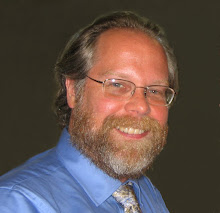Miller deserves a place in the history of karaoke, having pioneered the idea of using video to display words in sync with the music. For this, he has earned mention in the Wiki entry on karaoke. But Wiki is quick to point out that this was not karaoke, and not even a precursor.
The primary difference between Karaoke and sing-along songs is the
absence of the lead vocalist. This renders most forms of sing-along
songs as footnotes to Karaoke rather than precursors.
I suppose the whole meaning of the word (karaoke literally means "empty orchestra") supports relegating Mitch to the footnotes rather than claiming him as the inventor. But still I find this a bit disappointing.
It reminded me of some comments that showed up on my Milwaukee Karaoke blog. There were two conflicting reviews of a karaoke spot. Somewhere buried in the comments was a dichotomy... two different views of what karaoke is, or perhaps, two different reasons that someone would go to a karaoke bar.
The traditional answer to the question of "what is karaoke?" fits in with "empty orchestra" and the Wiki page. This traditional answer also fits in with the ubiquitous and completely erroneous statement that the definition of karaoke is "a method for the intoxicated to embarrass themselves". (This is a quote from US patent 7,551,161. Honest. Nothing could be further from the truth. Alcohol and karaoke have nothing to do with each other. The fact that there are 116 different bars in the Milwaukee area that offer karaoke is just coincidence.) The traditional answer is that karaoke is a performance.
But there is a different answer to the question of "what is karaoke?" I saw it when I did my first karaoke gig with teenagers. I see it at my gig at Bootleggers every night. Sure, there are people who get up to sing solos and duets. But there are a lot of people who get up in large groups. Ten people on stage is not uncommon. If the stage were larger, there might be twenty, or thirty. It is not uncommon for there also to be a crowd of people in front of the stage, singing along with the crowd of people on the stage.
This is karaoke in the style that Mitch Miller pioneered. Karaoke as a sing along.
The August 14 issue of Science News has an interview with Ian Cross, who is the director of the Centre of Music and Science at Cambridge. He drives home this same distinction between "music as a performance" and "music as a group thing":
In traditional societies, there are performers, but music is primarily interactive, so everybody participates and it's embedded in daily experience. ... I've worked with ethnomusicologists [people who study music across cultures] who play recorded music to members of non-Western groups and try to measure how they perceive and react to it. But these people don't think of a recording as music. They're bored by it. It makes no sense to them because it's not interactive.
This is just my little ethnomusicology, but I think the huge popularity of karaoke among younger folks has a lot to do with getting back to our roots of interactive music.




No comments:
Post a Comment